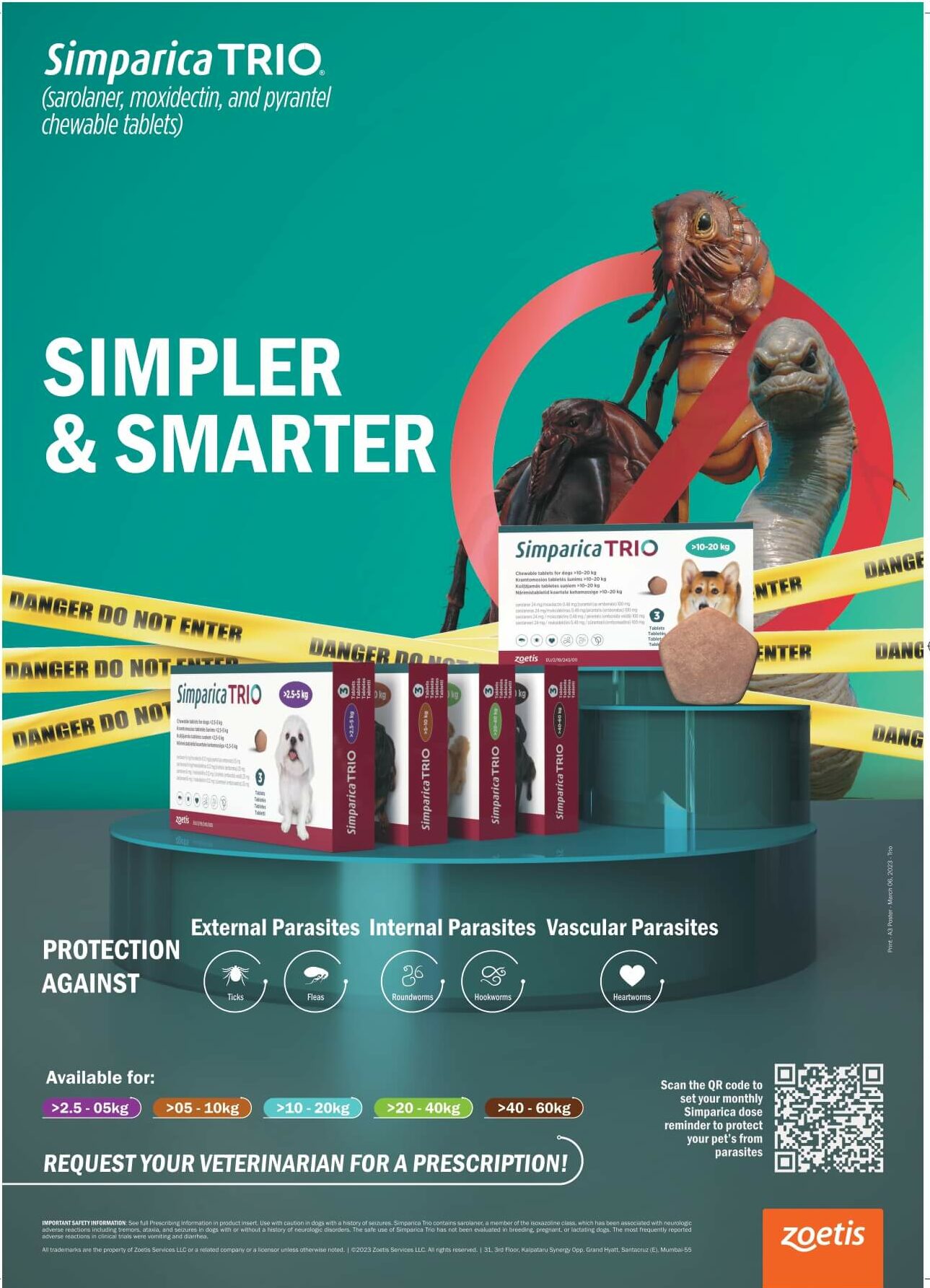
It can be an indicator of a number of different health concerns
New Delhi, November 5, 2019: Most dogs develop a cough at some point in their lives, and it’s often difficult for pet parents to determine the cause of the hacking or whether it’s a serious problem. In dogs, a cough can be an indicator of a number of different health concerns – some more serious than others. Here’s a brief guide to some different types of canine coughs and what you should know about them. Here’s a brief guide to some different types of canine coughs and what you should know about them.
Kennel Cough:
In most cases, when an otherwise healthy dog suddenly starts coughing, it’s usually due to kennel cough or another similar viral or bacterial infection. Kennel cough can involve a deep, dry hacking cough, sneezing, snorting, gagging, or even vomiting. There may also be spasms of coughing brought on by excitement or exercise. If your dog has recently been in a situation where she has had contact with other dogs– for example, in a boarding facility – she may have contracted a kennel cough infection. Symptoms usually appear from 2 to 14 days after exposure. Complete recovery from kennel cough can take up to three weeks in healthy dogs, and twice as long in older patients or in dogs with underlying immunosuppressive conditions. Puppies can also take a bit longer to recover. Since a serious episode of kennel cough can result in pneumonia, if your dog doesn’t start to improve on her own, or if the cough becomes progressively worse, it’s important to make an appointment with your vet to be on the safe side.
Pneumonia:
A cough that sounds wet (a “productive”cough) usually means there’s a buildup of fluid in the dog’s lungs. Fluid or phlegm in the lungs is a symptom of pneumonia, which can have a variety of causes. Bacterial pneumonia is caused by a pathogen, and there are several organisms that can result in infection. Fungal pneumonia is the result of a deep fungal lung infection, and is a more serious and hard-to- treat problem. Symptoms of pneumonia in addition to coughing include loss of appetite, weight loss, fever, lethargy and difficulty breathing. Another type of pneumonia is aspiration pneumonia, also called inhalation pneumonia. This is a condition in which the lungs become inflamed and infected as the result of breathing in a foreign substance like vomit, regurgitated gastric acid, or food.
Tracheal Collapse:
A recurrent, episodic cough that sounds like a goose honk can be a sign of a collapsing trachea –specially if your dog is a small breed. Tracheal collapse is a chronic, progressive disease that can be either congenital or acquired. Dogs with the condition also typically show signs of exercise intolerance, respiratory distress, and gagging while eating or drinking. Treatment options for a collapsing trachea include medical management, which works for about 70 percent of dogs with a mild form of the condition. More serious cases often require highly specialized surgery. Cartilage building supplements are also given to maintain the integrity of tracheal cartilage.
Reverse Sneezing:
Another condition common in small breed dogs and also brachycephalic breeds is the tendency to reverse sneeze. While it is indeed a sneeze rather than a cough, the sound a dog makes while it’s happening can be mistaken for coughing or choking. Reverse sneezing is caused by a spasm of the throat and soft palate that is triggered by an irritant, which can include simple excitement, exercise, a collar that’s too tight, pollen, or even a sudden change in temperature. In a regular sneeze, air is pushed out through the nose. In a reverse sneeze, air is instead pulled rapidly and noisily in through the nose. The sound of a reverse sneeze can be startling, and many dog parents wonder if their pet is choking or having an asthma attack. Most dogs that reverse sneeze also assume a telltale stance — elbows spread apart, head extended or back, and eyes bulging.
Heart Disease:
Coughing can also be a sign of heart disease in dogs. Other signs of a heart problem include a bluish tinge to the tongue, loss of appetite, fatigue, weakness, decreased exercise endurance, a too-fast or too-slow heartbeat, and increased respiratory effort. If your dog has been diagnosed with a heart condition and coughs mainly while she’s resting, lying down, or at night, it could be a sign the disease is progressing. Treatment of heart disease in dogs depends on a variety of factors including the severity of the problem, the age and health of your pet, cost of treatment, and other considerations. A visit to a board-certified veterinary cardiologist can provide more information about the severity of your pet’s heart condition. A dog’s cough that doesn’t resolve quickly on its own should be investigated, and the sooner you make an appointment with your veterinarian, the better your pet’s chances for either a full recovery or a well-managed condition.
-Exclusive story by Buddy Life Magazine
To read more, subscribe to Buddy Life!










 " >
" >
 " >
" >